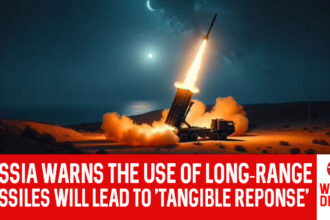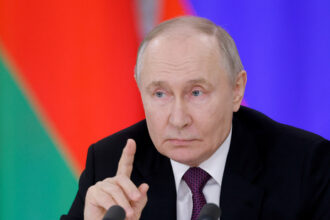China has taken a bold stance by condemning the United States for blocking a ceasefire in Gaza.
On Wednesday November 20th, 2024, the United Nations Security Council failed to adopt a proposal for an immediate ceasefire in Gaza. The proposal aimed to halt the violence and allow humanitarian aid to reach civilians caught in the conflict. It was put forward by the 10 elected members of the body: Algeria, Ecuador, Guyana, Japan, Malta, Mozambique, South Korea, Sierra Leone, Slovenia and Switzerland.
The resolution, despite gaining 14 votes in favor, the United States used its sole veto vote to block it, citing concerns over its wording and the exclusion of a condemnation of Hamas.
Russia and China sharply criticized the U.S. veto. Russian officials accused the U.S. of prioritizing geopolitics over humanitarian needs, while China called for the international community to hold the U.S. accountable for obstructing peace efforts.
Fu Cong, who is Beijing’s top envoy to the UN, said China was “very disappointed” with the result.
Fu Cong reiterated that the repeated use of veto by the United States has reduced the authority of the Security Council and international law to an all-time low.
The Chinese diplomat also slammed the US for having “shattered the Gazan people’s hope for survival and pushed them further into darkness and desperation”. He added that nearly 44,000 people have been killed in Gaza, and the US still does not hesitate to use its veto, highlighting that it is not just a number but behind it could be a child, a nursing mother, or a breadwinner of a family.
………………………Pause………………………………………………
Now backing China’s stance, Russian senior diplomat addressed the U.S as fully responsible for the deaths of tens of thousands of innocent civilians. He requested that the American representatives should perhaps read through the resolution thoroughly before voting against it.
………………………Pause………………………………………………….
As expected, the United States defended its decision. US deputy ambassador Robert Wood said the resolution did not sufficiently address Hamas’ attacks or Israel’s right to self-defense.
He said that a “durable” end to the war must come with the release of the hostages, stating that the two goals were “inextricably linked”. Washington’s decision could be linked to its longstanding alliance with Israel despite growing calls for balanced diplomacy
This veto has sparked global criticism, intensifying divisions at the UN. It also underscores the shifting dynamics in global diplomacy, as Russia and China position themselves as advocates for a more multipolar world order.
The deadlock at the UN raises critical questions about the future of international diplomacy and humanitarian intervention. As the crisis deepens, will the world find a way to unite for peace?
What’s your take on the U.S. veto? Share your thoughts in the comments below. Don’t forget to like and subscribe for more global updates.















